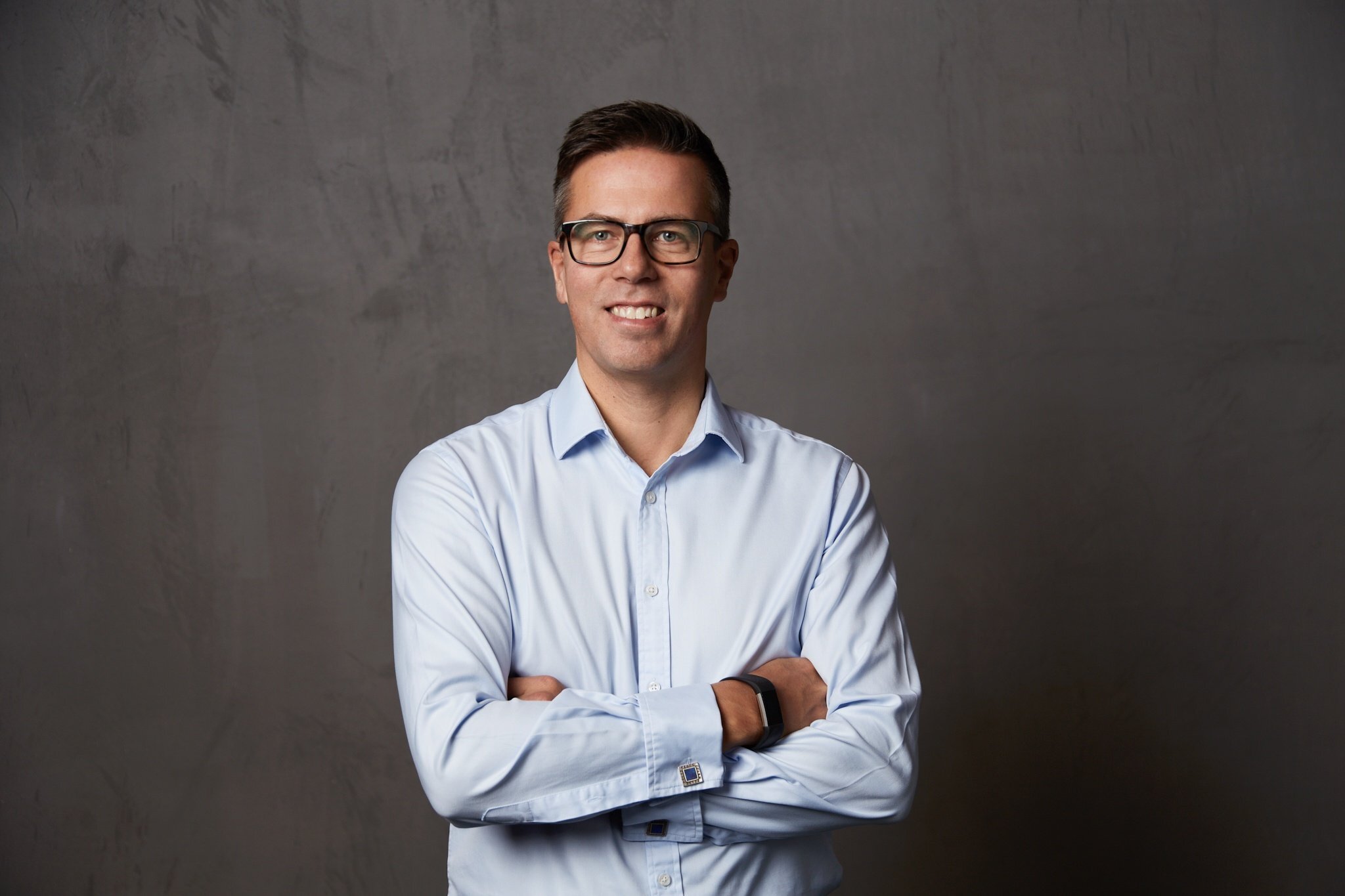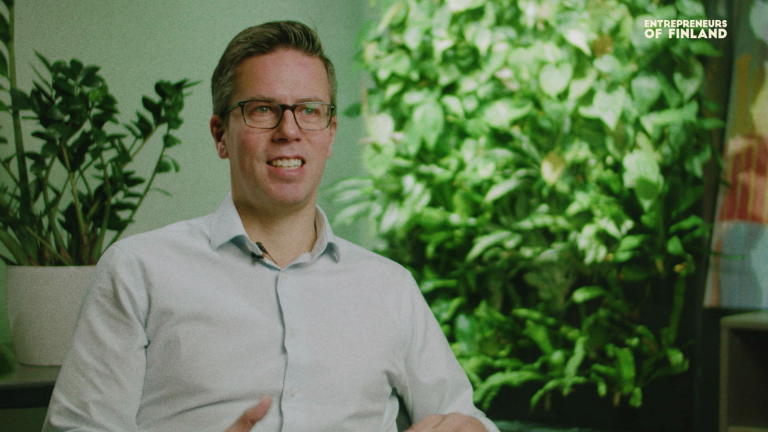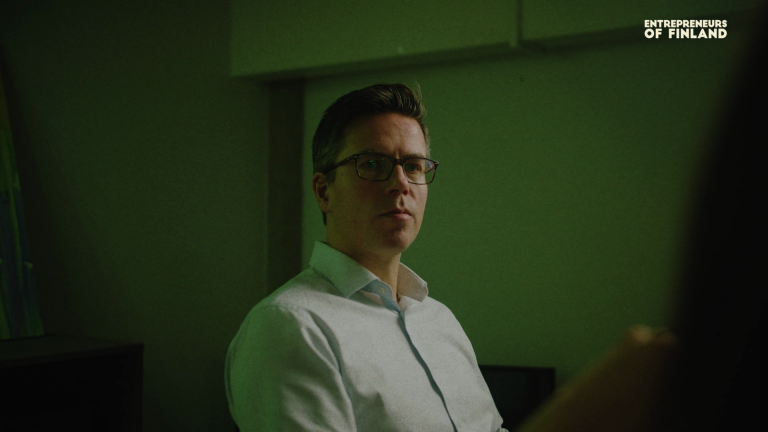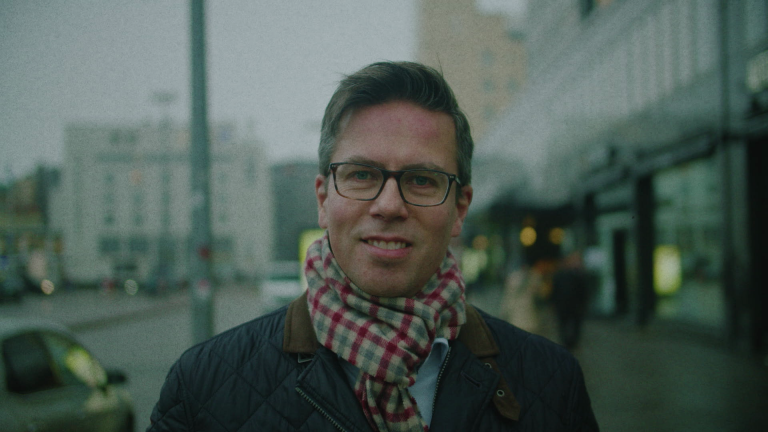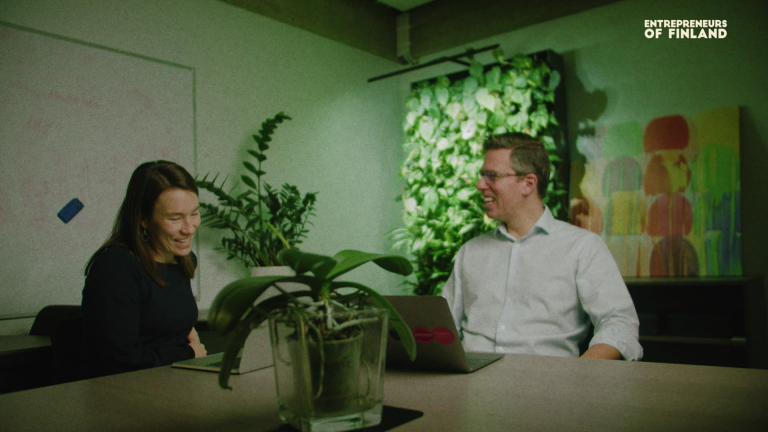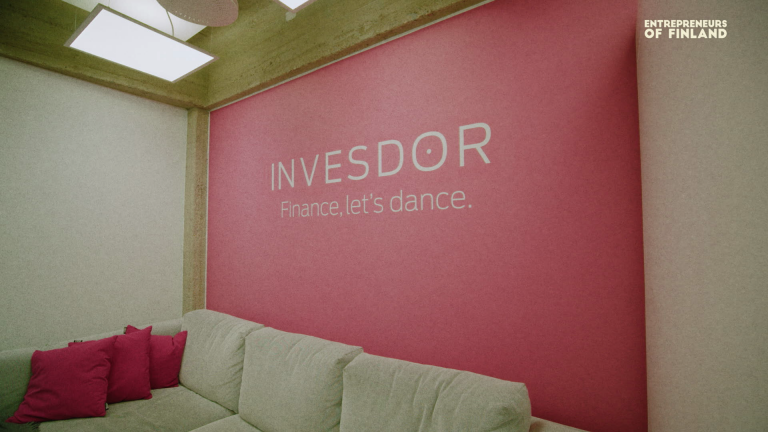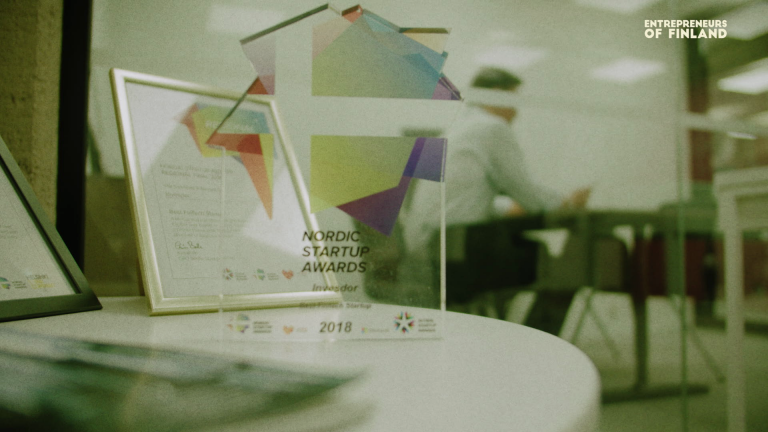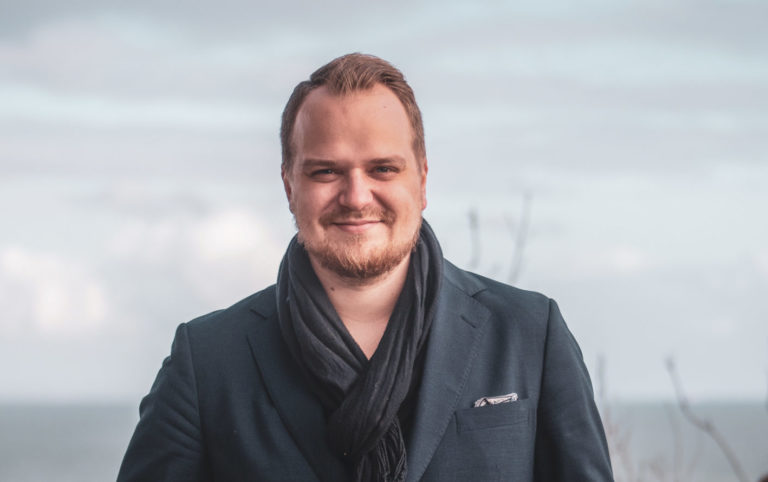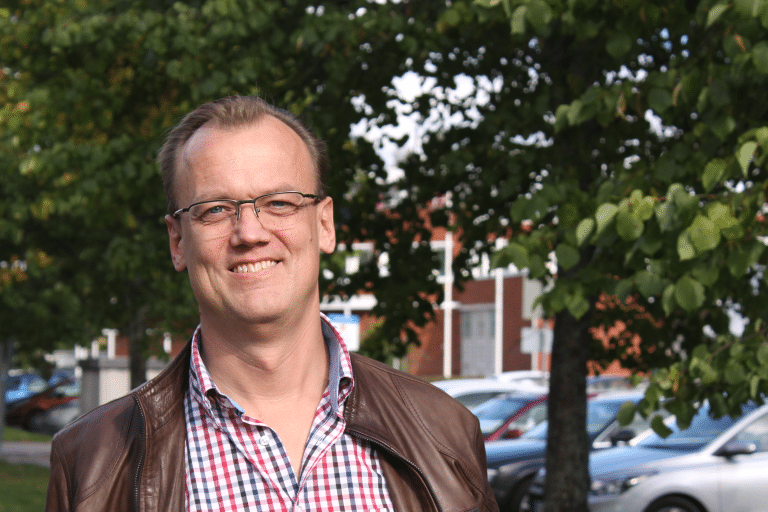It’s fine to have no plan B
When I was young, even around two years old, my grandfather would ask me what I wanted to do when I grew up. I’d always answer that I wanted to be a fighter pilot, and that was pretty much the target I aimed for in my life. Eventually, I went to the army in Finland and took the air force test, but they found out that my eyes weren’t good enough. That was an area that I obviously had no plan B for. I didn’t know what I was going to do next so I just kept on studying.
I was never so interested in school until I studied business in Paris where I realized finance was really interesting to me. The reason I moved from Paris to London was that I recognized the best jobs were all over in London and I wanted to make sure I had the best options. After graduation, I worked in the finance department for different companies, from investment banking to engineering for more than twelve years.
In 2009, I was working at a construction company called Consti Group, being their first employee of the company with the responsibility over acquisitions and finance. Another year on from that I was the CFO at Corbel which was a property management company. And it was around this midpoint between Consti and Corbel that the idea for Invesdor started to come around.
Not the most typical start
The story started with six guys in a bar – a collection of my neighbors, school friends, cousins, and business contacts. Everyone had quite different backgrounds from legal and marketing, to one person in business intelligence and another in the development side, while I covered finance.
For fun, we used to think of business ideas and the different sides each of them has. It actually all started after my friend’s wife said that we should at least do something useful than just going to the bar. So, we started to develop business ideas (but still it happened in the bar anyway). At that time we’re all under full-time employment and the initial idea came about because of my history in finance.
We wanted to give the communities the possibility of becoming shareholders in companies. We started looking into how we could do this and make the offering easier. Then after contacting a UK funding platform, we realized that nobody could help us in Nordics, and from that, we created Invesdor – as a solution to our own problem.
“It can be quite lonely on the operational side”
I think our working environment was a little strange as a result of how everything began. It was almost like a hobby and later we realized that it could be something interesting to develop. In fact, we’re in the right place with good timing, and we should go for it. From there we had a fast transformation to become more professional.
Looking back, in an ideal world, it would have been nice to have one or two more co-founders also come in on a full-time basis as I did. I would have appreciated some aspiring partners to discuss any issues with as it can be quite lonely as an entrepreneur on the operational side.
Now, most of the founders are shareholders and advisors for the company. Still one of the original founders is a board member. But as we started to bring more people into the team, we became more professional and the natural connection dropped a little.
We financed ourselves in the first year
My experience was relevant to the development of the company. The sector is heavily regulated and the regulations get tighter and tighter. But I have been working in the financial sector pretty much my whole life, so I understood where we were going. Of course, having a network is also the key to any business. It is not possible to do everything by yourself, so you need a lot of help from people around you.
My decision to go full-time came when we got the first external funding. It’s also one of the most memorable milestones. It meant our business model is validated and we could make other people believe in our mission. From there we need to prove that this was no longer a hobby but a real business. For the first year, we financed ourselves, but this external funder believed in our vision about digitizing the fundraising market. When the investment was made, the deal was that I would start full time. After that, we started to bring in new employees and pay salaries, which felt great.
Pursue my sweet spot
With Invesdor, I became an entrepreneur for the first time. During the journey, I’ve learned a lot from many different business angles. For example, initially, I knew very little about marketing. Now, although I’m not an expert, I’m still familiar with the basic principles and know how to push things forward.
Before Invesdor I was a bit restless, never really staying in one job for longer than four years. Looking back, I was just trying to find something that was the right fit. It’s been eight years for me now as an entrepreneur and I still really enjoy what I’m doing. Since the beginning when everything was built from scratch until now when we’re up to 35 people in five countries, new things and challenges keep coming all the time. This really gets me excited.
The new normal of work-life balance
The feeling of being an entrepreneur is quite unique. There is much more freedom and flexibility. However, sometimes it feels like you have to carry the weight of the world on your shoulders. Now that we have more shareholders, employees, and stakeholders, the decisions must be better argued than at the beginning.
I remember, when I was working for other people, that I really wanted to differentiate between working time and leisure time. But my concept of time changed when having my own company – there’s a very fine line between business time and free time. If I wake up a bit earlier on a Sunday morning, I do not mind doing a bit of work while everyone is still asleep.
Sometimes I catch myself thinking about the business all the time, especially in intense periods, like during own fundraising processes, for example. Some decisions or worries do not leave your head during days or nights until they are solved. The separation between work and personal life can get blurred, so when negative things happen, it can damage your whole life more broadly.
Through all the ups and downs, my wife has been very supportive, fortunately. And of course, there have been many great events along the way. I wouldn’t change anything though. I love what I have been doing and accept the disadvantages that come along.
When you first start you will probably get hit many times
When we started equity crowdfunding and digital fundraising, some existing business angels were not that pleased, but I completely understand why. Some of them saw us as a competitor. They had their own established ways of doing business and then we emerged like the new kid on the block bringing these new ideas and disruption. But as time went by, people started to see the benefits and realize the new business potential which we were bringing to everyone.
When you first start, you will probably get hit many times with barriers and dismissals. If you keep trying and push through, you might end up being best friends with the same people. When you are disrupting something there is always rejection at first, but once you push through things will start to change.
The same happened with the venture capitalist (VC) community. There may still be some old-fashioned VCs who haven’t come around to the potential of our partnership. But then there are lots of businesses that see this as an opportunity and work with us actively. The media has also been bringing negative issues to the table. So it’s all about pushing forward and eventually, you’ll reach the point where you can proudly say “Yes, we were right. This works!”.
Be an optimist
I think for all entrepreneurs when you’re developing a company that has not made a profit yet, you need to maintain a balance. You should find a way to get enough turnover, but if you are not there yet, where do you get the funding? Most likely from the investors. In the financial services industry, the heavy regulation brings even more pressure to the table, as the infrastructure for complying must of course be in place.
Under funding pressure, losing sleep is quite often the case – when you’re lying awake at night wondering if the business will survive. Even the smallest thing can tip the balance and it may impact every life aspect of you, your loved ones, and your employees. To survive the tough moments during the development of the company, you have to be an optimist.
Often the different pressures of the entrepreneur are not visible outside, but they can be very painful during the rough times. This is why optimism is key to push forward and find out a solution one way or another.
Finding your own path by trial and error
Entrepreneurship isn’t for everybody. Key things you need is to be able to cope with uncertainty and remain optimistic. An optimist can still chase the positive sides while facing turbulence and obstacles. Also, you must have a true passion and firm belief in your work. Especially during the earlier stages when there is still so much uncertainty and not even a clear view, where the turnover is coming.
It may take a long time to find out what you really like to do. I am not even sure whether I have yet found what I love the most. For me, it’s good to try new things, kind of finding your own path by trial and error. So try many things and quit the unpleasant activities and focus on the pleasant ones. I’d encourage people to find their paths in that way.
Make finance easy and fair for entrepreneurs
When I started investment banking, it was just working and I’d get on with anything that came across my desk. But now my priority is to do something good. Looking back to when I started Invesdor, one motivation was to protect the entrepreneurs who may sometimes be squeezed out by investors when they’re getting funding.
Often, the entrepreneurs are youngsters trying out new ideas and businesses. Meanwhile, investors and business angels are often very experienced and talented negotiators. So there is often an unbalance. But also the entrepreneurs may be unfair and rude. This is another reason why Invesdor exists. We want to create and nurture the kind of fair environment where the relationship between investors and entrepreneurs can be mutually beneficial. That way both parties are protected from poor practices and unnecessary incidents.
An ecosystem to build a better Europe
Above anything else, we want to be the largest and most beautiful player in Europe in our field of business. The good news is we are in good shape with a clear path to achieve that goal. This ecosystem of digital fundraising we have been building is a driver for me every day at work.
We’ve now revamped our strategic direction to focus on this “doing good” part. So basically, we want to make Europe better by creating the most outstanding digital finance ecosystem. For us, it’s very important that we start to select more companies who are doing something good for society. We currently choose about 5% of the companies, which apply to our service, so we have a possibility of selecting our target companies.
We didn’t pre-plan the company culture
Workplace culture formed in the early stage and was especially affected by the founders. It was also shaped by the first employees. Our first employee, for example, was an Italian and there is still a lot of his influence on the working culture even though he’s no longer in the company. But initially, of course, it started from the founders and then has little by little changed by the people who were brought in to the company.
We didn’t pre-plan what kind of working environment it needs to be, it just happened through people. Although we did slowly start to notice the direction as time passed. Little by little, the new people we employed had to fit in with the existing culture.
Attitude is very important in the recruiting process as well as personal skills and chemistry with the team. Fitting to the workplace culture is as vital as having the qualified requirements for the role. We don’t train people from scratch but the specific skills you can always learn.
I’m not afraid to acknowledge my weaknesses
When it started, I was doing everything myself. Now I’m trying to take a more hands-off approach on issues. I’m trying to take a step back, which can be difficult when I feel like I can do things faster. On a similar topic, we’re currently in the process of finding a new CEO for Invesdor. We now have 35 people in five different countries, and we need a more systematic approach that can bring Invesdor to the next level.
I feel as though my strength lay in starting things and pushing projects forward. However, when we become more structured, organised, process oriented and systematic, I know that I’m probably not the strongest candidate to continue in lead. I’m not afraid to acknowledge my weaknesses. Of course, it is always possible to develop and work on these areas, but if someone else can replace you and cover your weaknesses, so you can focus on your strengths, why not?
It’s important to identify your strengths and weaknesses. Once you do that, even in team building, you know your capabilities and as a result, you can support the team better. If I were to focus on developing my weak sides, I might be able to say I’m good at it after a few years, but then it’s not worthwhile if you can get somebody else who is already good at those areas.
There are a lot of helpful advisory services
Finland, in general, is great. I mean, to start a company you can just go online, it’s simple, quick, and easy. We also got involved with Helsinki City at our early stage, they have this concept called “Newco Factory”. We got free office space there.
It’s also good to mention Business Finland where you can get grants for starting a company. Although, at first, we made our own applications, which were rejected. Then we found a consultant who did the application process for us and then we got our grants. My advice would be to get somebody else to do the papers for you if you can’t; then you can focus yourself on the business aspect. Once you take time out to make these applications, you’re taking time away from developing your business.
Advice for new entrepreneurs
Prepare some savings before you start
One advice, if possible, is to have some money before you start. After starting your new business, you may have a long wait before getting any salary. So, you should calculate your savings and how long you can actually live on that. So be prepared for some time, before your company has developed enough, so that you can start paying your salary.
Nurture relationships with personal connections
Another advice is to build networks. It’s always good to meet other entrepreneurs, but also people from many different areas of life. To me, business appears to very much be built on relationships. So, build your business relationships to find support, knowing who to call if you have tax problems or a legal problem. Similarly, with Business Finland, I think it’s very important to build that relationship and hopefully get funding and help from external consultants.
Then, it very much depends on what kind of business you have and who your target audience is; do you need external investments, or do you have the capability to build the company from scratch and make it profitable?
When we started, we went to Startup Sauna and made use of their co-working space for working and meeting new people. For me, meeting face to face works best. Simply, go to lots of events, especially those for investors and entrepreneurs – participate in Slush, Arctic 15, and so on. Go to where you can increase the chance to meet the right people. Then maybe have lunch here and there, nurturing the relationship.
Be comfortable with uncertainty
This is primarily a personality issue, but I’m sure you can practice and develop it. For some people, certainty is important, but I’ve been happy to start new things, even if I don’t know anything about them beforehand. If I start a new job and I get fired, it’s okay, I just do something else. Maybe I even learned, that I should not try that sector any more.
From that, it’s not so important to me to know exactly what is going to happen or be sure in advance what is the next step. If you are the one who needs to foresee clearly what may happen in one year, you are perhaps not so suitable for entrepreneurship because things can change really fast.
It always hurts when you fail
In the early stages, your focus might not be so clear, so stay open, try many things, and the company may find its way little by little. Eventually, you can focus on the core things that matter. There will be a lot of failures and shortcomings, but that’s fine. You just learn from those and then you start to find the right path.
It always hurts when you fail, of course. But on average it’s a good thing as that’s the way you learn. Hopefully, you’ll learn from your mistakes and not repeat them. You can hear many entrepreneurs talk about their failures with appreciation. The key to success is viewing failing as finding out the wrong ways to do things.
I’ve made bad investments and I’ve lost money. I’ve made a failed partnership and lost money. One possible failure would be trusting somebody and having them let you down. It sucks, but then, in the end, you just need to correct the situation. For me, it’s very much like “Okay, this person is now on my blacklist” so the next time this person comes to talk to me, I’ll be more careful. From there, you learn to build or rebuild whatever you can.

